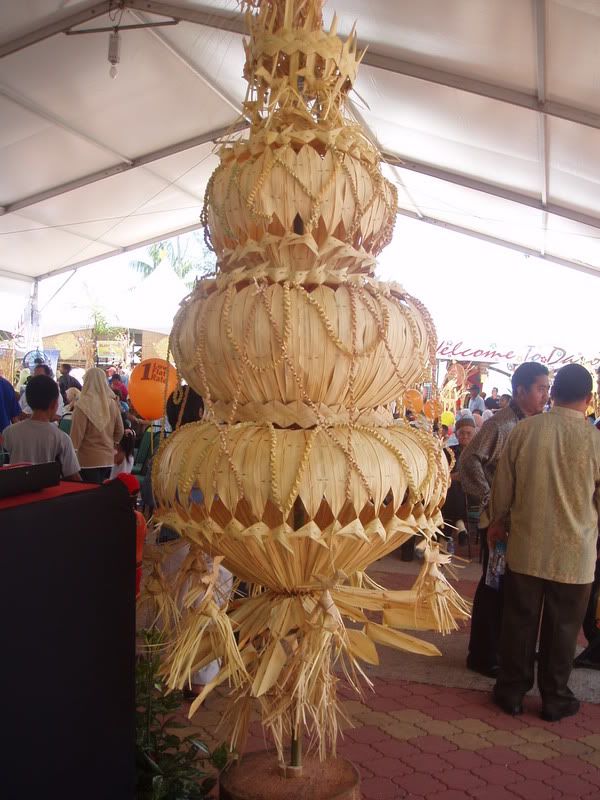“Culture is the sum of all the forms of art, of love, and of thought, which, in the coarse or centuries, have enabled man to be less enslaved”- Andre Malraux
Photo: Rakan Sarawak
Throughout the history of religions and cultures, objects used in cults, rituals, and sacred ceremonies have almost always been of both utilitarian and symbolic natures. Ceremonial and ritualistic objects have been utilized as a means for establishing or maintaining communication between the sacred (the transcendent, or supernatural, realm) and the profane (the realm of time, space, and cause and effect). On occasion, such objects have been used to compel the sacred (or divine) realm to act or react in a way that is favorable to the participants. Before Kaul, sacred objects must be prepared carefully in accordance to Adet ( Law and order of the universe).
Belisieng
Belisieng is one of the most important ritualistic object for kaul. Belisieng is made of Kayou Taeh ( english: Borneo Ironwood or Bilian Malay: Kayu Belian). It is 2 feet long with circumference of 4 feet. In the middle there is a hole a foot deep. The hole will be filled with charms and teeth of a tiger, bear, snake and crocodile. The Belisieng is originally taken care by the Melanau Sitieng in Mukah but now has been well cared by the Melanau Medong of Dalat. The Bapa Kaul (Father of Kaul) would sing mantra to the Belisieng early in the morning to initiate the Kaul.
The Belisieng is also used during the oath of innocence.
Serahang
Photo by abbybhiha
Serahang is a flat round offering basket raised on a 7 feet bamboo pole. It is made of bulok tedieng, semat, nypa leaves, daun iseng and daun tigoh. Serahang means " to offer" or "to surrender" and serves as offering basket for Ipok ( Spirits). It is placed on a riverbank while the Bapa Kaul( Father of Kaul ) would sing mantras to invoke the spirits and pours water over the offerings. In the past the sick and elderly would gather by the Serahang so that the water poured on the offerings would fall on them and wash away all evil.
The design of a Serahang reflects the melanau cosmology. The Melanau believe that the universe is built with 15 Lapih Likou ( Layers of Worlds) ie. 7 Layers above dan 7 layers below. This World is called Likou Dagen Dua (The World in the middle). Main components of a Serahang are Paka, tepasik, tetilip, beburung and patik. The amount of these components shows the number of Ipok and the layers of the universe. Hence there will be 7 Tetilip, 7 colorful flag and 7 Beburung ( birds).
Tibou

The Tibou is a death defying 30 feet high swing.Here youths dive from a high bamboo scaffolding and catch a swinging rope as it reaches the height of its arc. First one, then two and eventually eight young men hanging in a clump from the giant swing as it soars above the beach. It is believe that the spirits will be swinging together with them.
While raising the poles for tibou, everyone would sing a Suked ( Mantra) to the Ipok Tibou ( Spirits of the Tibou). This will ease the construction works. The mantras goes:
kat kerakat,
keruieng udat,
tibou idei padak mekat.





the first & most important sacred object of kaul is seraheng, all kaul ceremony use this kind of flat round basket as a offering tool, belisieng @ kaul belisieng only held by medong village, so that belisieng only a sacred object for medong people and medong kaul, the main object which represents melanau society overall and kaul itself is seraheng
ReplyDelete